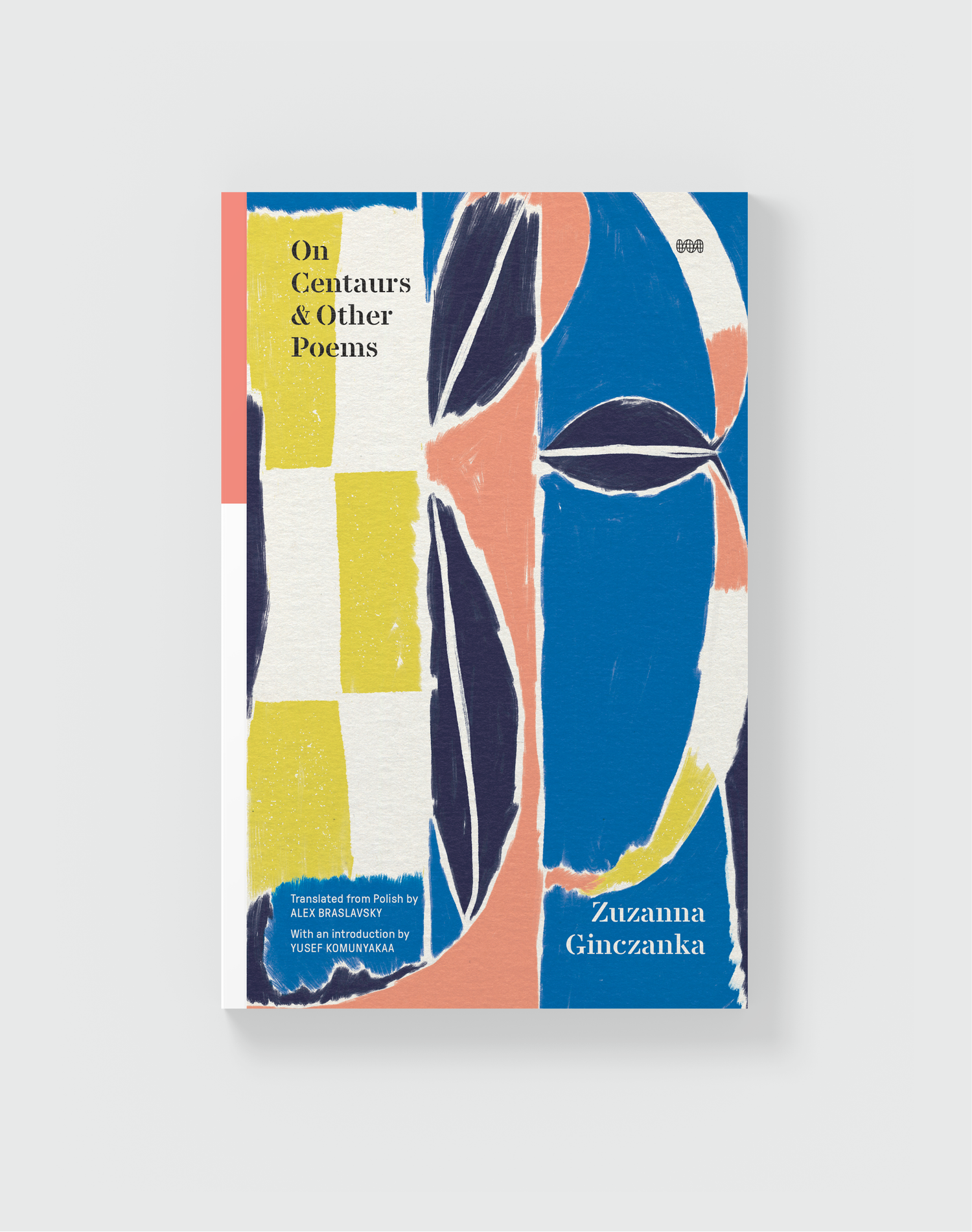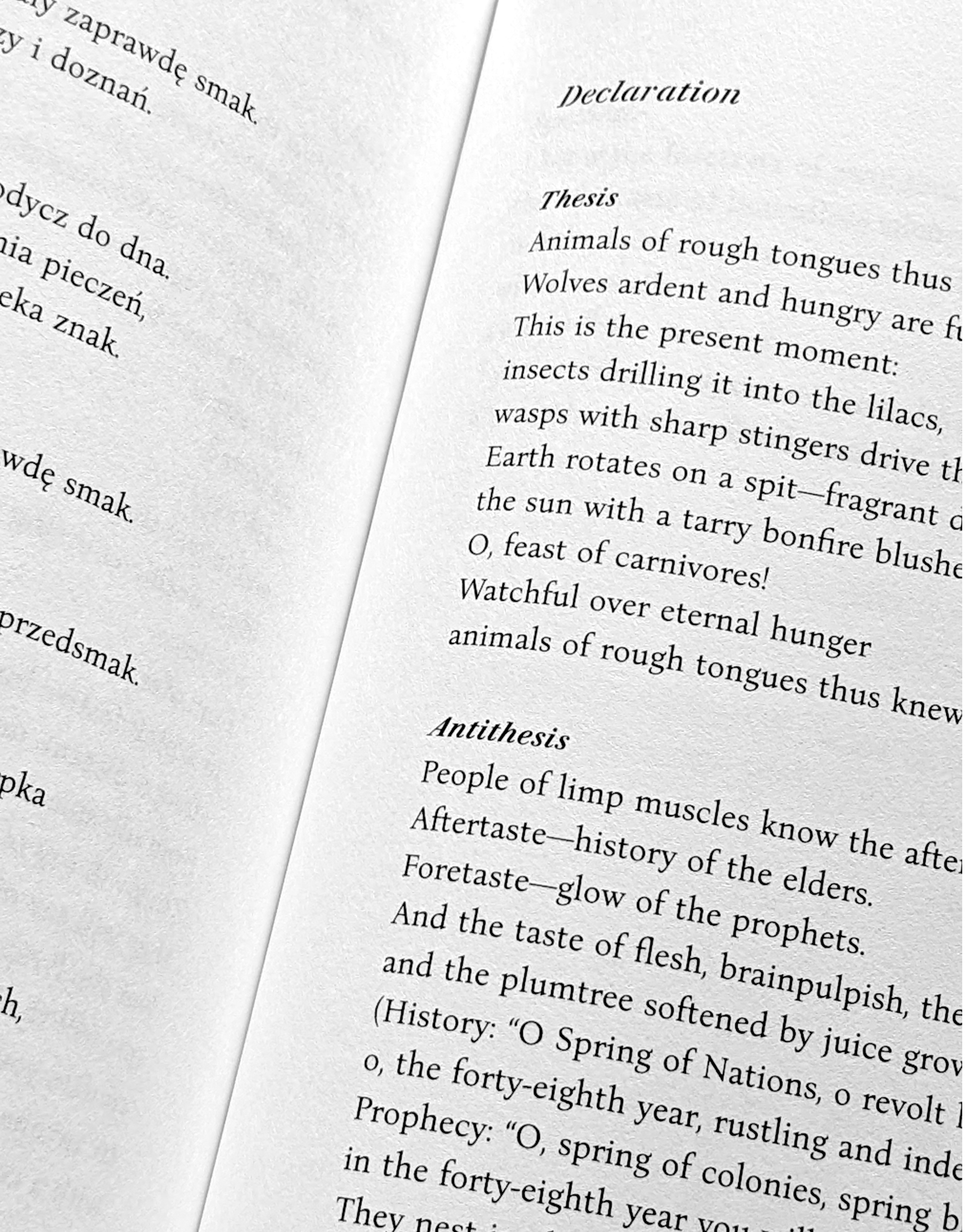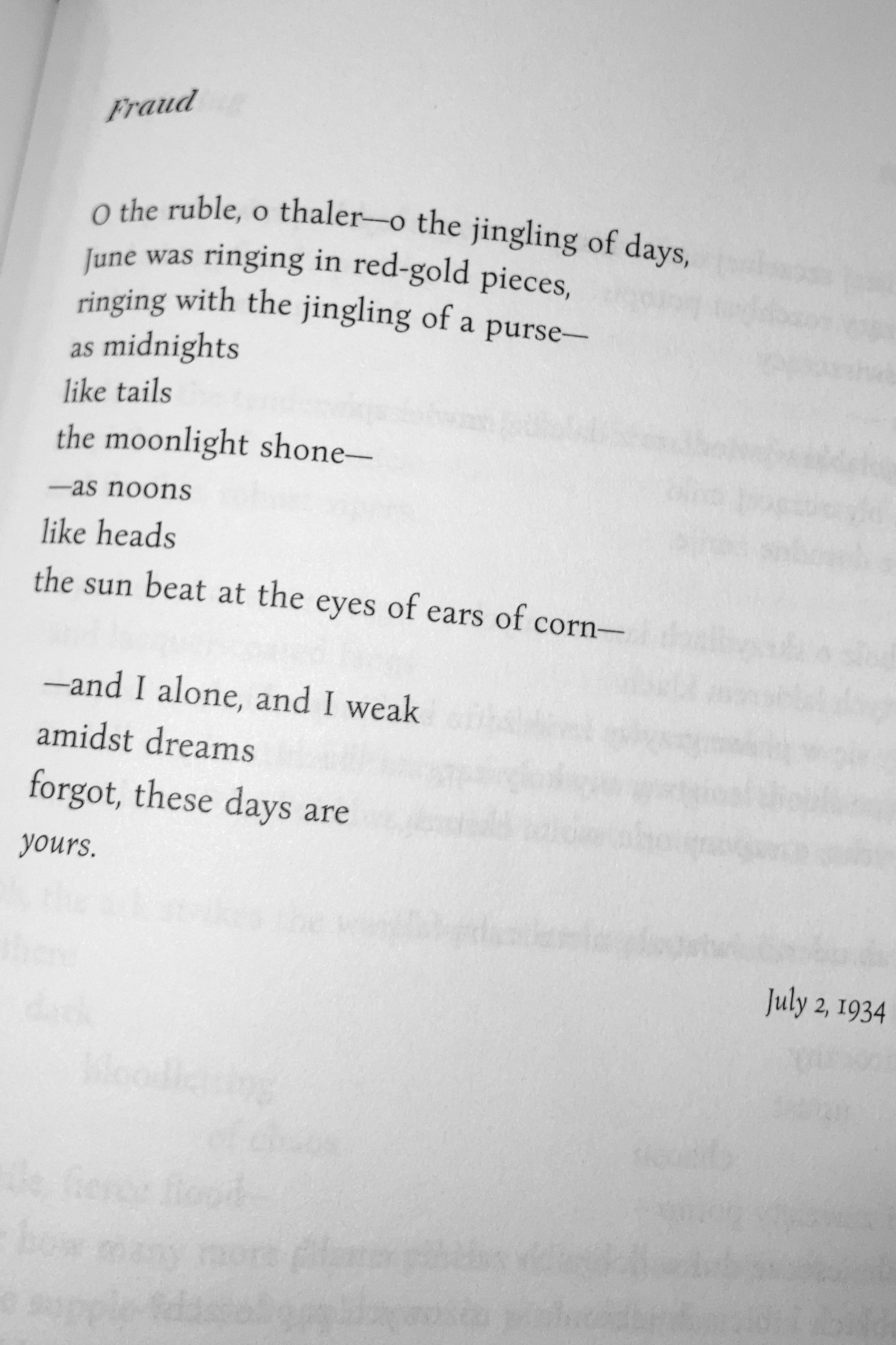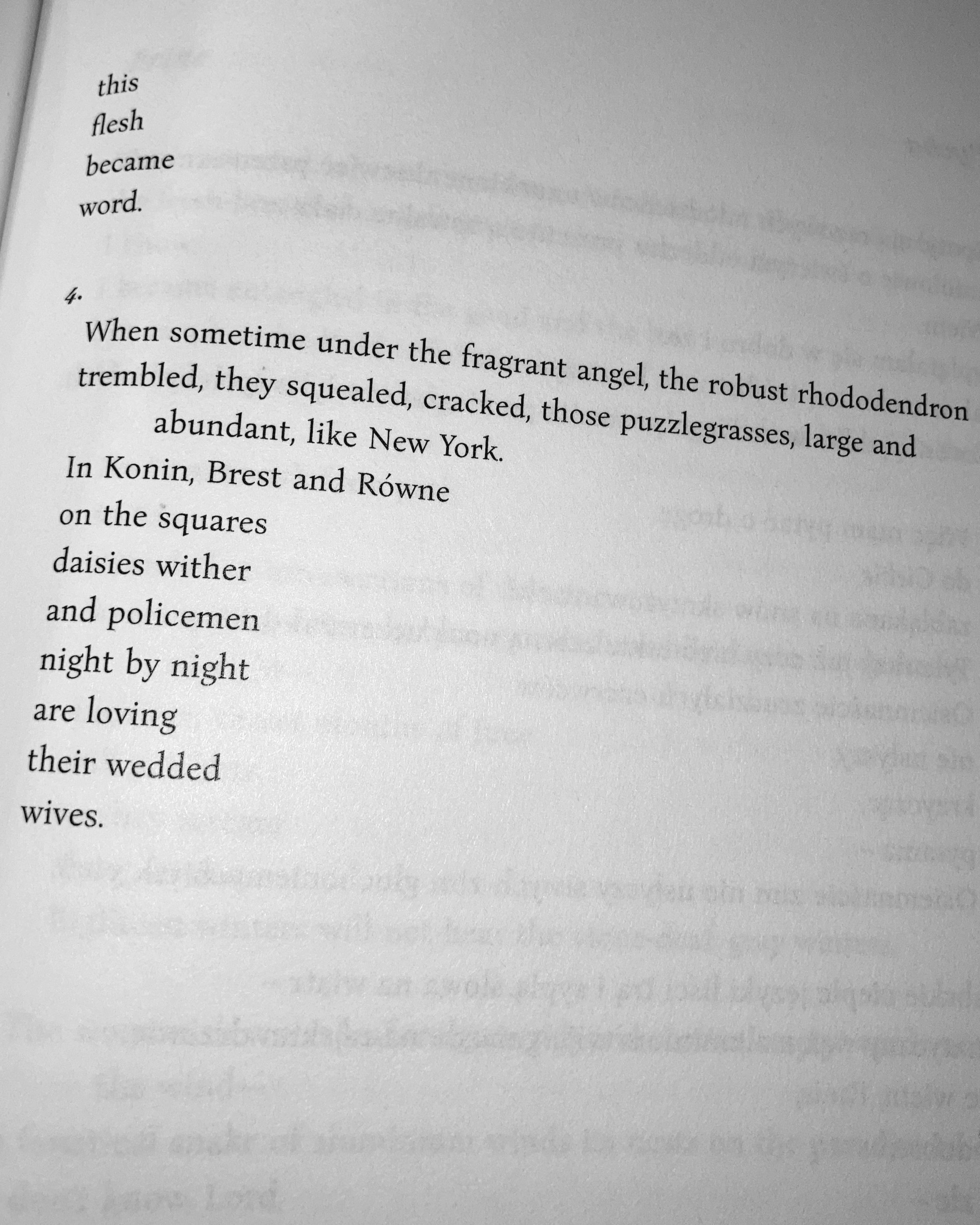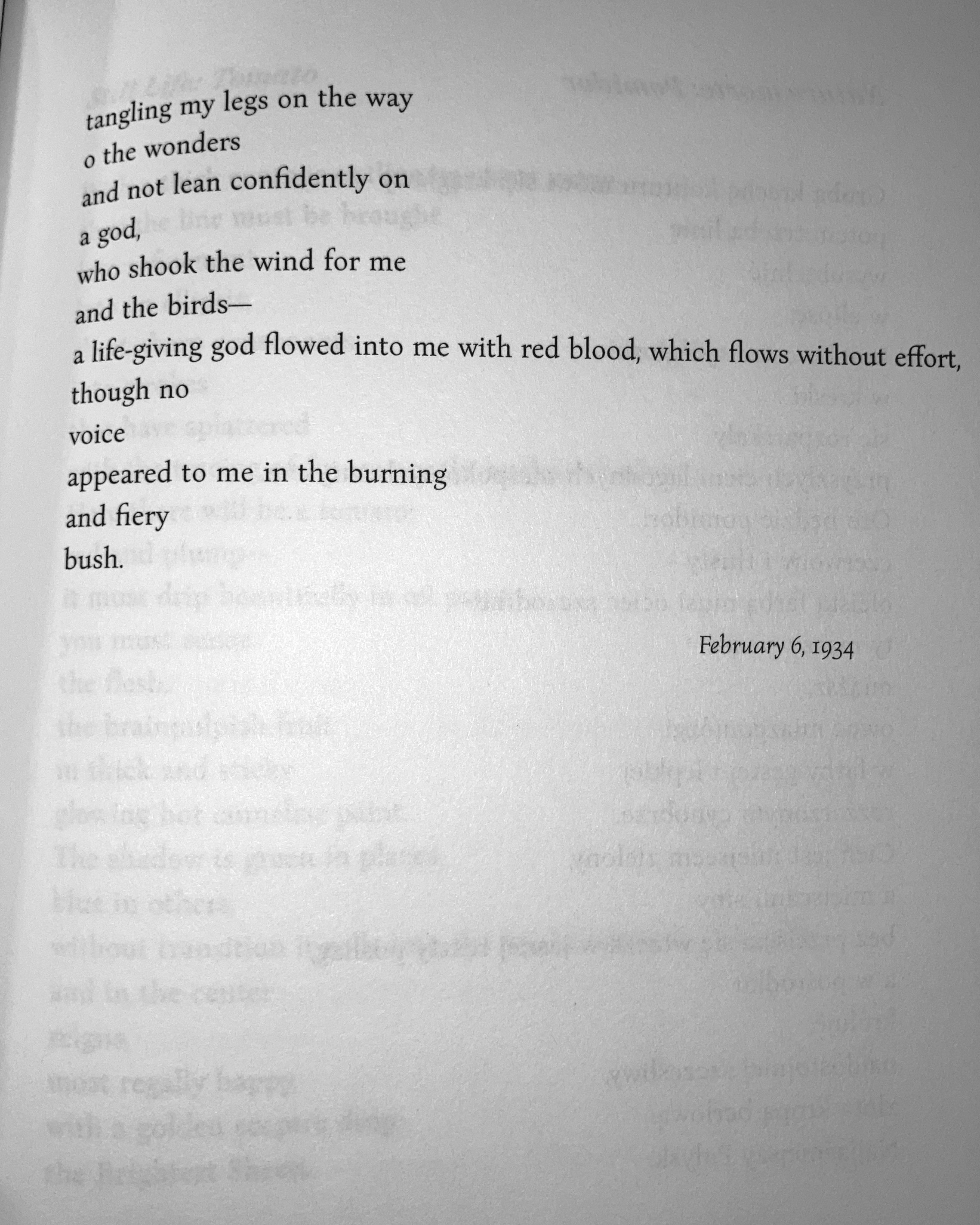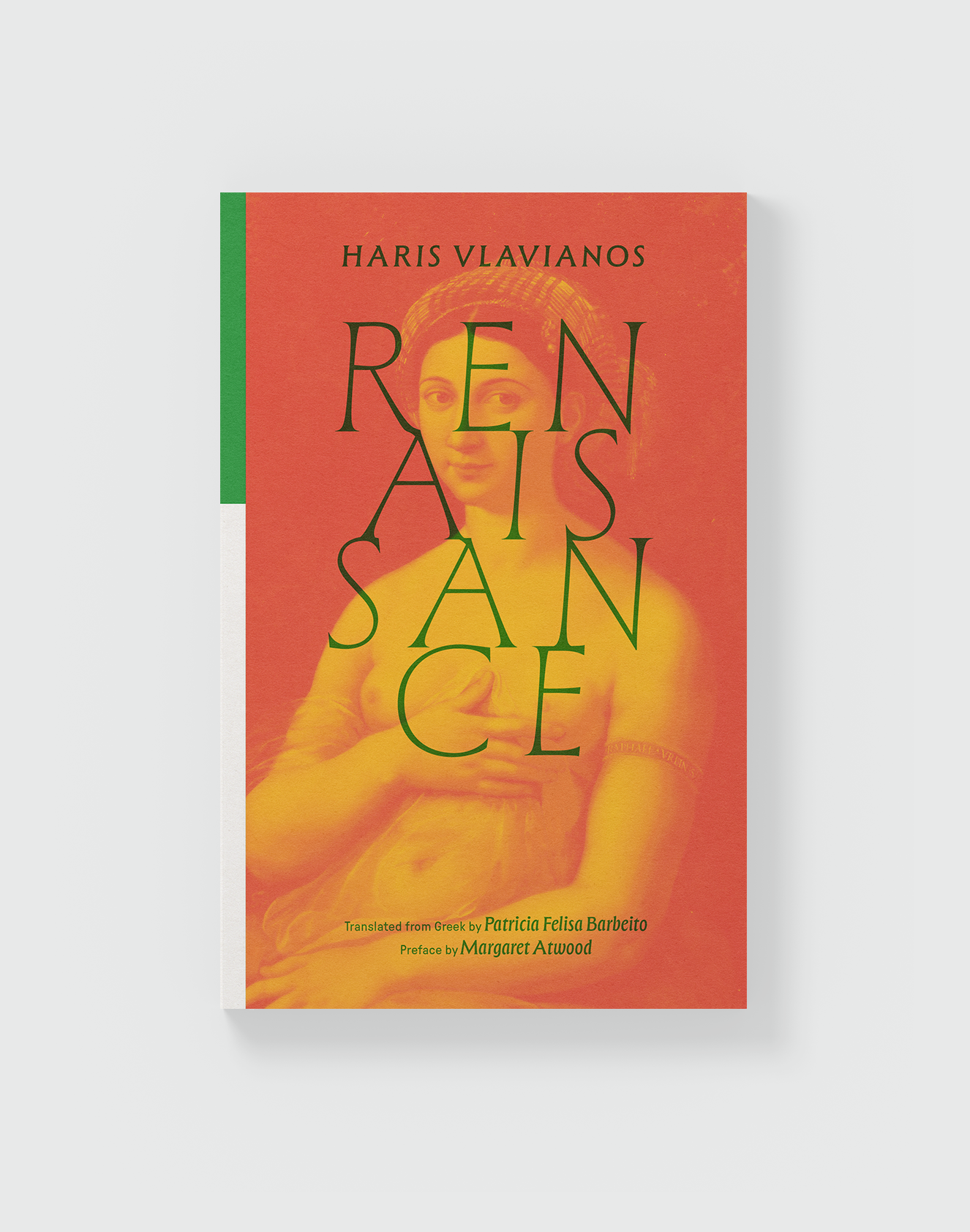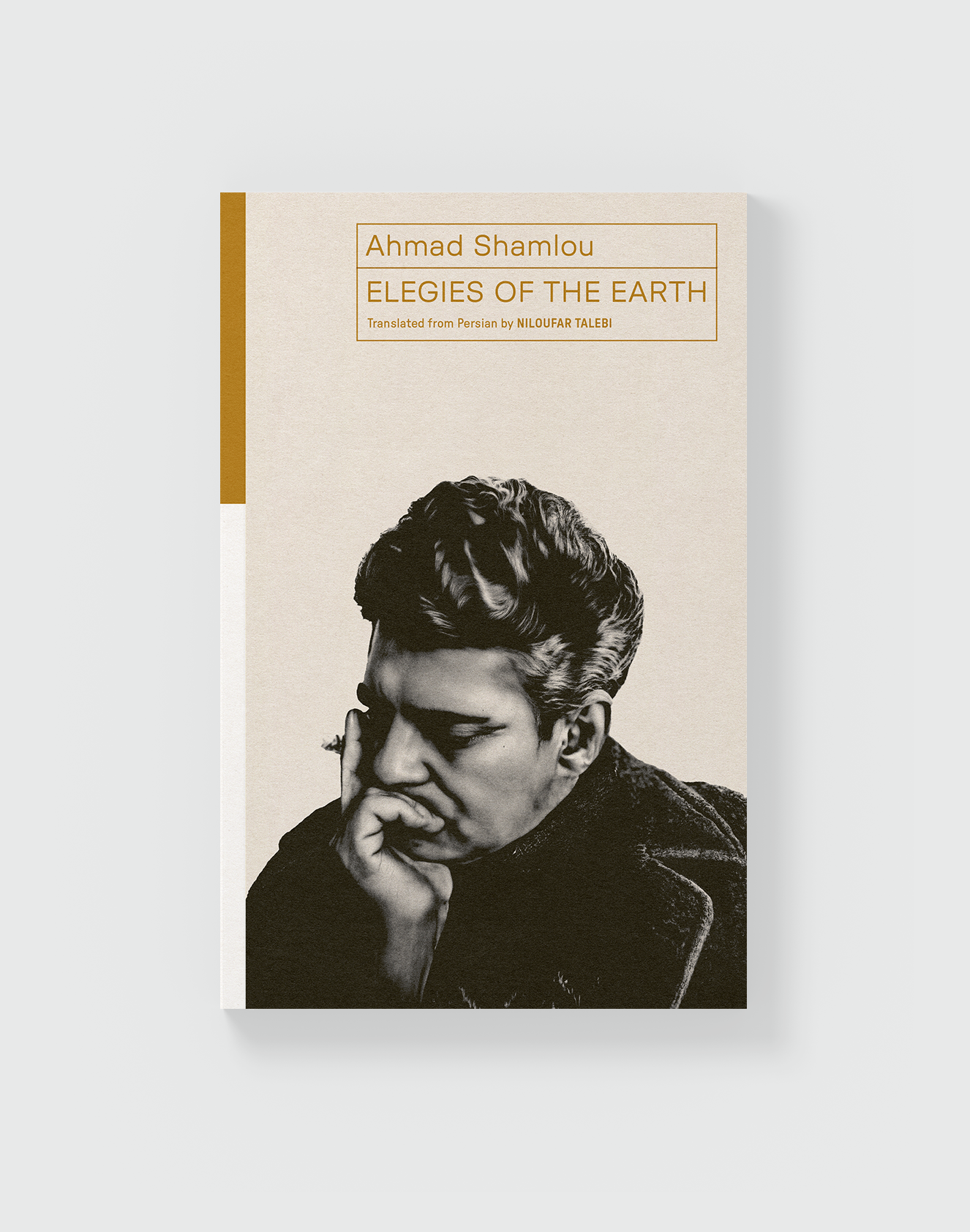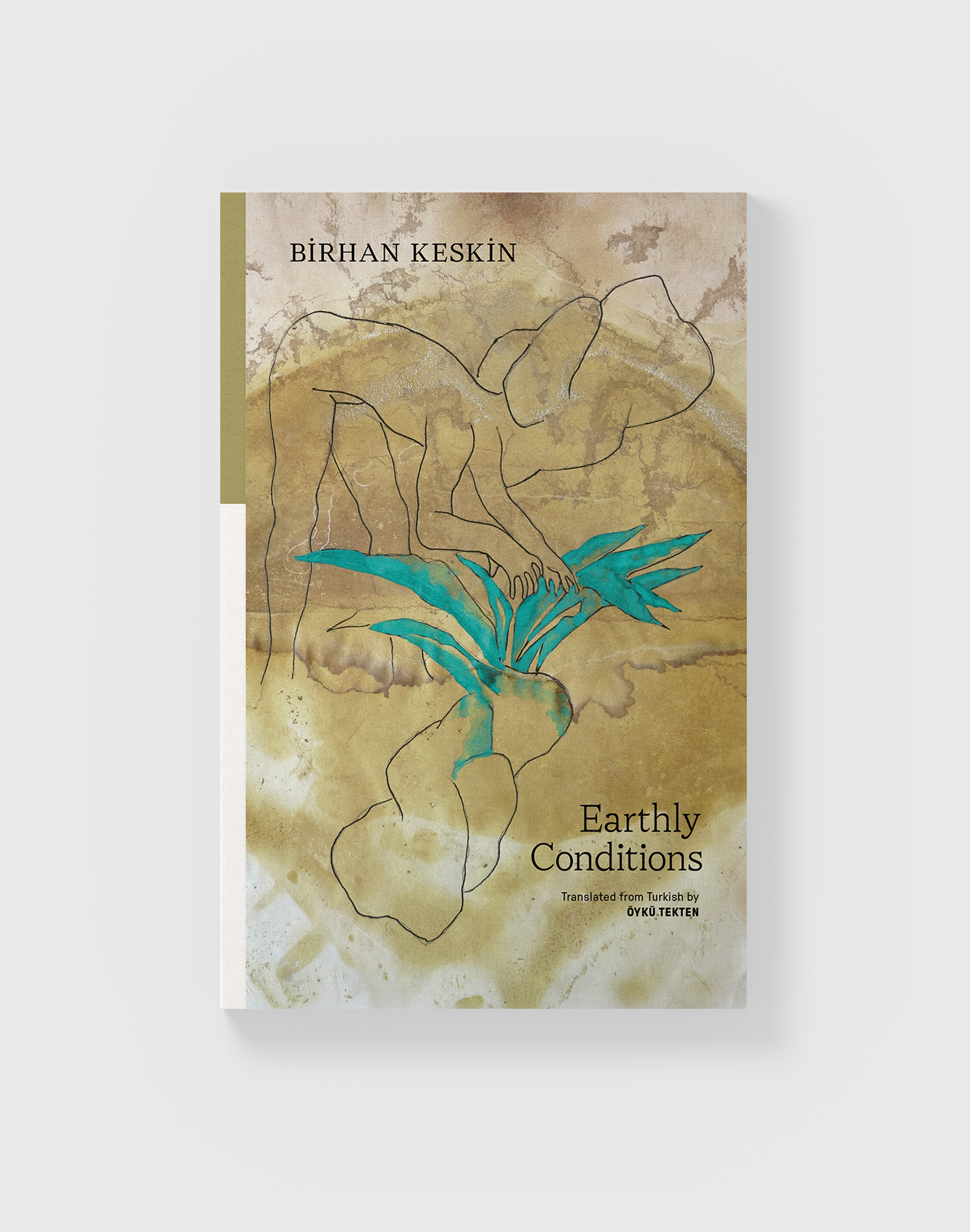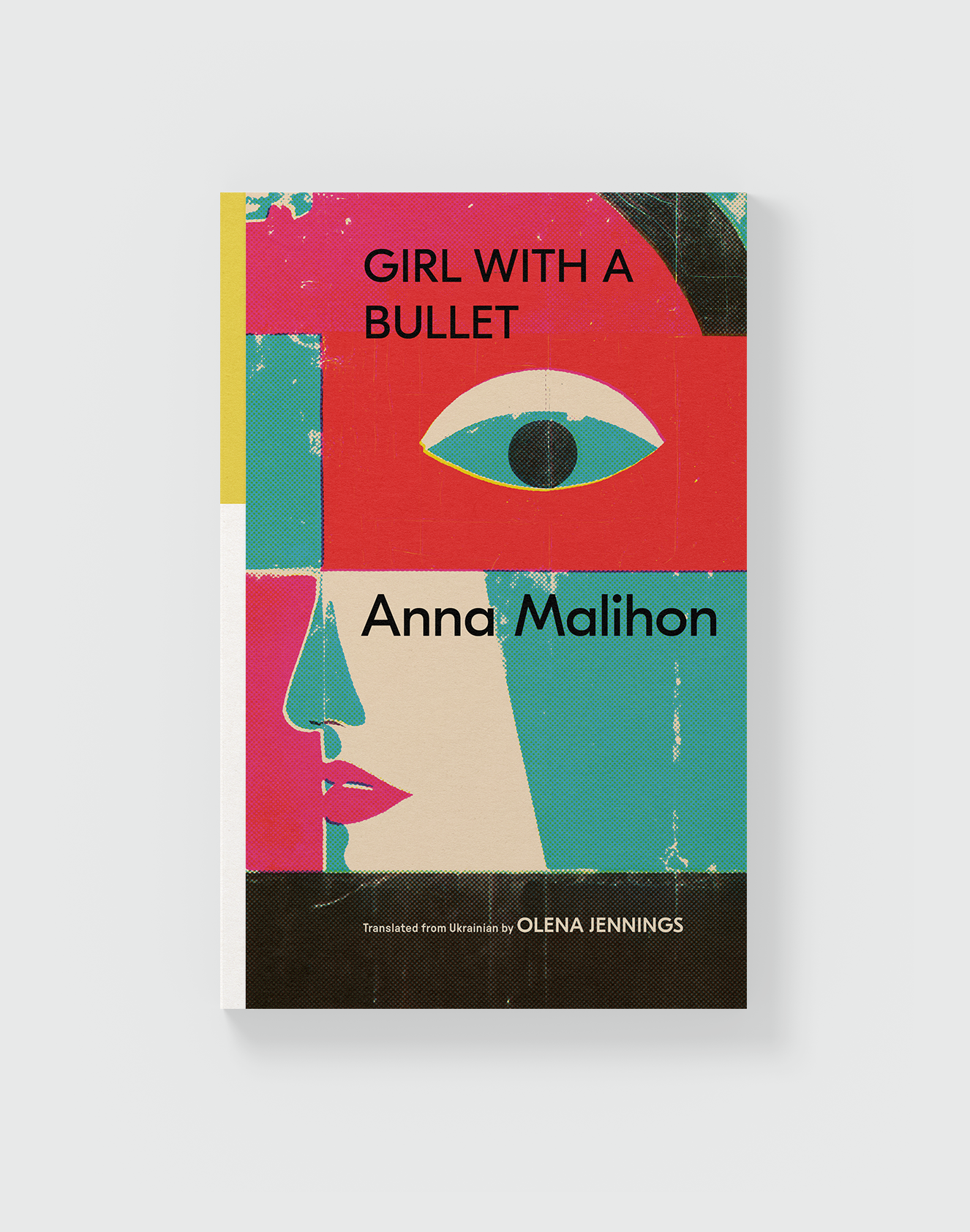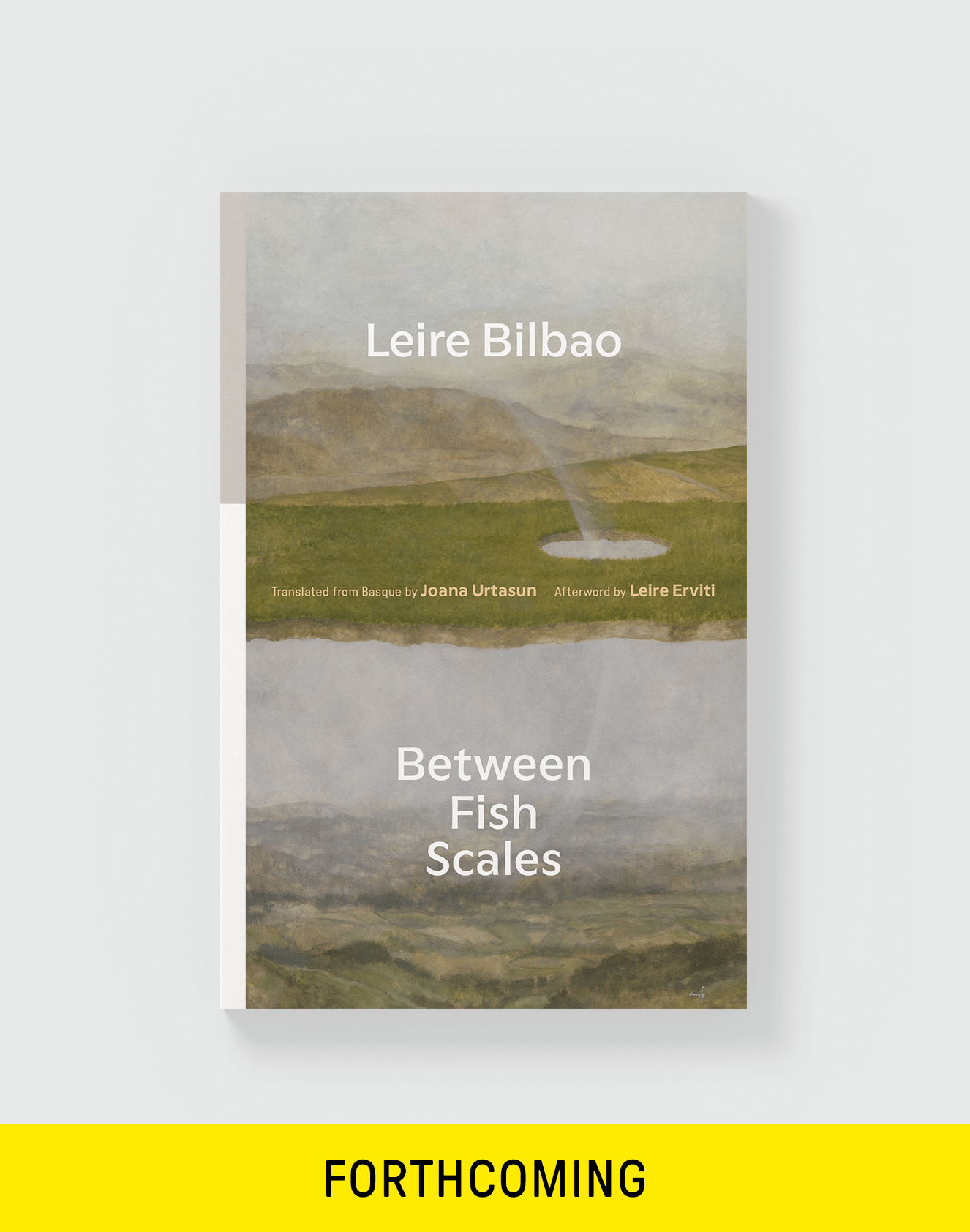Zuzanna Ginczanka - On Centaurs & Other Poems
-
Bilingual Edition
256 pages
February 15, 2023
ISBN 978-1-954218-10-9
LCCN 2022948954
Eastern European Poets Series #48
Distributed by Asterism (US) and Turnaround Publisher Services (UK & EU)This publication has been supported by the ©POLAND Translation Program.
Zuzanna Ginczanka
On Centaurs & Other Poems
Translated from Polish by
ALEX BRASLAVSKY
With an introduction by
YUSEF KOMUNYAKAA
Shortlisted for the 2024 ALTA First Translation Prize
The first selected volume in English of Zuzanna Ginczanka, a visionary Polish-Ukrainian-Jewish poet of the inter-war years whose life was cut short by the Holocaust.
Ginczanka’s surreal and mythologically-informed poetry appeared at a time in Poland when Jewish poets like Julian Tuwim were at the helm of the avant-garde in the Skamander poetic movement. Her 1936 collection On Centaurs was released to great acclaim when she was barely 20 years old. Dubbed “Tuwim in a skirt” by her contemporaries, Ginczanka’s youth, gender, and Jewish background posed challenges to her career in the Polish literary world of her time. She disguised herself as Catholic, but ultimately fell victim to the Holocaust in 1945. The hybrid identities she was forced to embody seeped into her poetry, which conjoins biblical imagery to idiosyncratic geological, cosmological and botanical obsessions. Published in a bilingual edition, with a preface by Yusef Komunyakaa and an introduction by translator Alex Braslavsky, On Centaurs and Other Poems introduces the full scope of Ginzcanka’s poetic vision and prophetic voice to English-language readers for the first time.
“To read Zuzanna Ginczanka is to witness—through the merciless gun barrel of history—the vanishing of a visionary, surreal world. A poet of a tragic biography, Ginczanka sings history with unparalleled sublimity, irony, and anguish.” —Valzhyna Mort
“Zuzanna Ginczanka’s On Centaurs is a gorgeous and important book, overdue in English. Openings like ‘Electricity, yellowish’ and ‘(Today childhood came to me unraveling)’ launch mystical, sensual quests through a lost world. Alex Braslavsky has translated each of these quests exquisitely.” —Jennifer Croft
“To enter the cosmology of Zuzanna Ginczanka’s poetry is to rediscover a sense of wonder, to gain new eyes through which to view the world. Something miraculous shines through these texts, even in their most tragic moments. From the early poems to the unprecedented On Centaurs and on to the haunting final texts, Alex Braslavsky dexterously conveys the intricacies of Ginczanka’s grammar and sensuous imagery in a masterful translation. This is a collection that will not quickly be forgotten.” —Kareem James Abu-Zeid
“Alex Braslavsky has given us a great gift in bringing into English the magical poetry of Zuzanna Ginczanka. These deeply personal, plain-spoken yet enigmatic poems—sensual, playful, filled with longing, fragrant with lilac and mint and violet—are so very lovely, and so very different from other pre-war Polish writing of the period. At long last this beautiful, unique voice can be heard by English-language readers.” —Bill Johnston
“Zuzanna Ginczanka’s poetry is even more pressing now than when she was writing in the years leading up to and during the Second World War. Alex Braslavsky’s masterful translations span her cut-too-short yet prolific literary career. As Ginczanka concealed her Jewish identity under many guises—to keep living, keep writing—so too, each of her poems is transformative of the lyric imagination.” —Julia Kolchinsky Dasbach
“Ginczanka wrote in a second langauge, favored strong images with a tight-woven rhythm, disregarded syntax, joined words in esoteric evocations, carefully staged her poems, and added the counterpoint of a sober or prophetic ending. Her verses are dense yet fluid; they are poetry in motion, poised to take flight.” —Alice-Catherine Carls, World Literature Today
ZUZANNA GINCZANKA (1917–1945) was a Polish-Ukrainian-Jewish poet of the interwar period. Born in Kiev, which her parents fled to avoid the Russian Civil War in 1922, Ginczanka began writing seriously as a child in Równe, Poland (now Rivne, Ukraine). She was nationally recognized for her poetry by sixteen years of age. Encouraged by a correspondence with poet Julian Tuwim, she moved to Warsaw in 1935. There she became associated with the Skamander group and the satirical magazine Szpilki, and befriended many writers including Witold Gombrowicz. Her 1936 collection, On Centaurs, was widely lauded upon its release. At the start of World War II, she moved east, living in Równe and Soviet-occupied Lviv. In 1942, after the German takeover of Ukraine, she escaped arrest and fled to Kraków on false papers to join her husband. She was arrested in 1944 and shot by the Gestapo a few days before Kraków was liberated by the Soviets. After the war, her last known poem "Non omnis moriar" was used in court to testify against her denouncers.
ALEX BRASLAVSKY (1994–) is a scholar, translator, and poet. A graduate student in the Harvard Slavic Department, she writes scholarship on Russian, Polish, and Czech poetry through a comparative poetics lens. She was an American Literary Translators' Association Mentee in 2021. Her work on Polish literature has been supported by the Jurzykowski Polish Grant and the cPOLAND Translation Program. Her poetry has appeared in Conjunctions and Colorado Review, among others.
PRESS
Reviewed by Ewa Chrusciel for The Polish Review
Reviewed by Piotr Florczyk for Asymptote
Reviewed by Alice-Catherine Carls for World Literature Today
